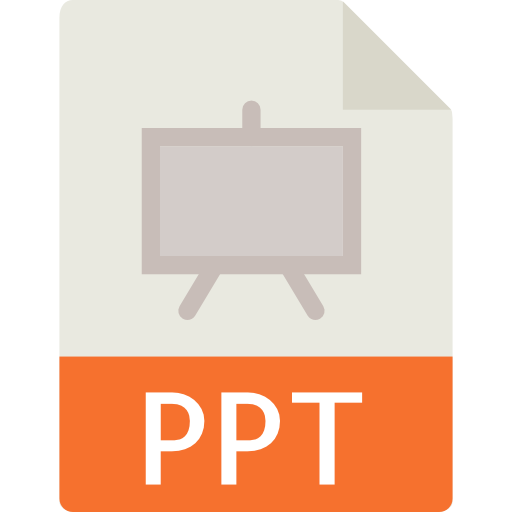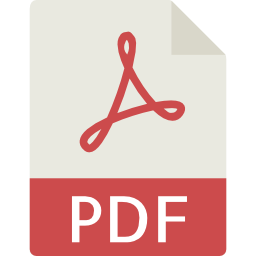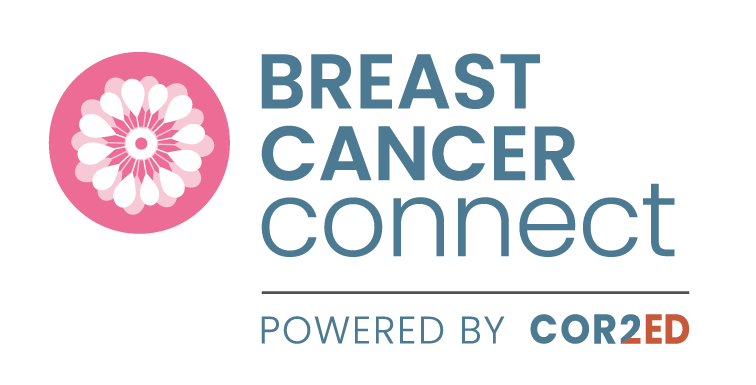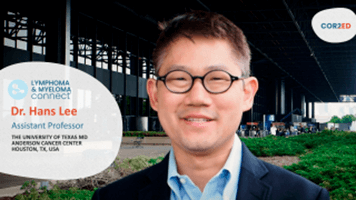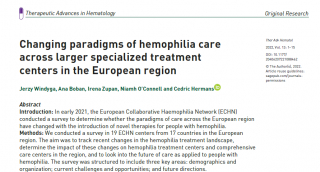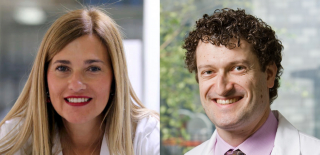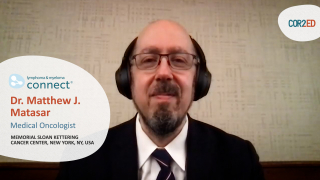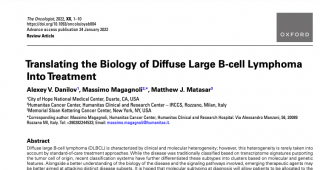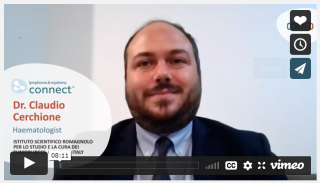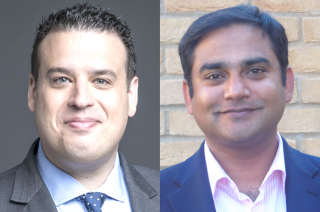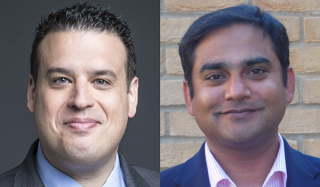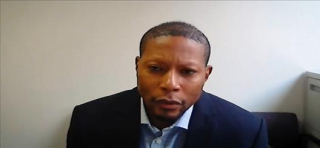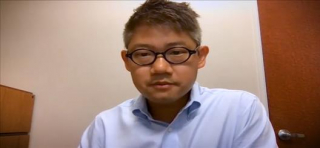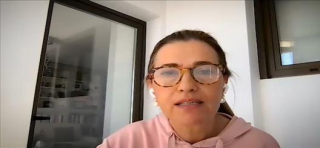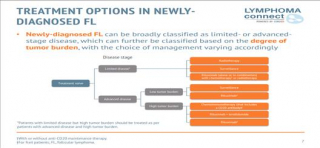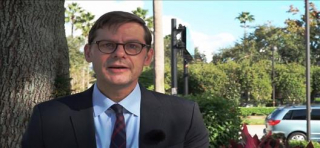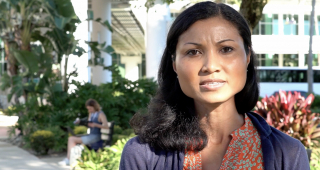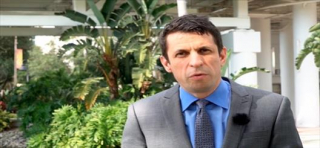
Selecting the appropriate treatment for indolent NHL: the now and the next
Selecting the appropriate treatment for indolent NHL: the now and the next
A virtual meeting discussing the current and future landscape of treatment for indolent NHL A virtual meeting discussing the current and future landscape of treatment for indolent NHLAssoc. Prof. Stefan K Barta, Dr. Jessica Okosun, Prof. Alexey V Danilov
Watch the video and download the slides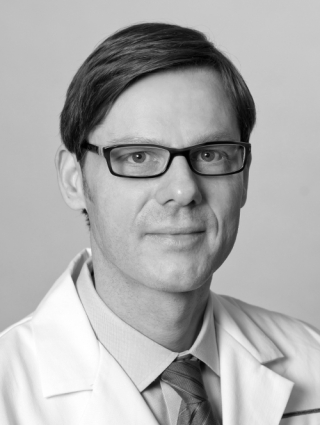
Assoc. Prof. Stefan K Barta
Haematologist-Oncologist
University of Pennsylvania
United States (US)
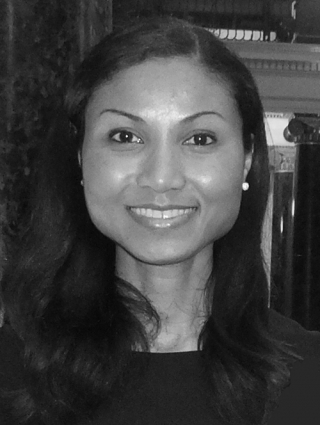
Dr. Jessica Okosun
Clinician Scientist/Haematologist
Barts Cancer Institute and St Bartholomew's Hospital
United Kingdom (UK)
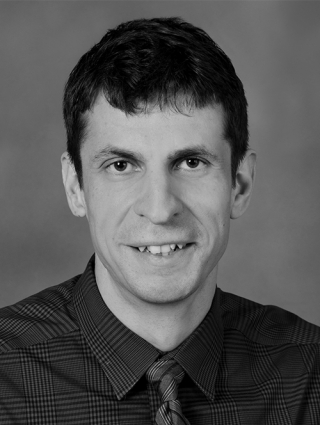
Prof. Alexey V Danilov
Haematologist
City of Hope National Medical Center
United States (US)



Assoc. Prof. Stefan K Barta
Haematologist-Oncologist
University of Pennsylvania
United States (US)
Stefan K. Barta, MD, MRCP(UK) underwent medical training at the Johann Wolfgang Goethe University Frankfort, Germany. He completed his internal medicine training at the St. Bartholomew’s and The Royal London Hospital, UK and his hematology-oncology fellowship at the Montefiore Medical Center/Albert-Einstein College of Medicine, Bronx, New York. Previously, Dr. Barta led the T-cell lymphoma program at the Fox Chase Cancer Center. He is currently an Associate Professor of Medicine at the University of Pennsylvania, and is in charge of the T Cell Lymphoma Program. His research interests are focused on novel therapies in T-cell and other aggressive lymphomas. He was awarded with an American Society of Clinical Oncology (ASCO) Young Investigator Award in 2010. Since then, he has led and/or developed multiple investigational clinical trials for lymphoma either as study chair, principal investigator or site principal investigator. He serves on the lymphoma committees for the Eastern Cooperative Oncology Group (ECOG-ACRIN) and AIDS Malignancy Consortium (AMC) and is a member of the AMC steering committee. He is reviewer for several oncological journals and is on the editorial board for “Clinical Lymphoma, Myeloma & Leukemia”.
Assoc. Prof. Stefan K Barta has received financial support/sponsorship for research support, consultation, or speaker fees from the following companies:

Dr. Jessica Okosun
Clinician Scientist/Haematologist
Barts Cancer Institute and St Bartholomew's Hospital
United Kingdom (UK)
Dr Jessica Okosun is a Cancer Research UK Clinician Scientist at the Barts Cancer Institute and an Honorary Consultant Haematologist at St Bartholomew’s Hospital, London UK, specialising in lymphomas. She received her BA in Natural Sciences (Pathology) and qualified in medicine from the University of Cambridge in 2004. She was a recipient of the Kay Kendall Leukaemia Fund’s Junior Research Fellowship, completing her PhD in 2015 from Queen Mary, University of London. Her research interests are focussed on understanding the origin, heterogeneity and evolution of lymphomas, particularly follicular lymphomas, in a bid to define novel biomarkers and therapeutic strategies. Her research has led to several awards including the EHA/ASH Translational Research Training in Haematology award and the UK’s Royal College of Pathologist Specialty Research Medal in Haematology. She is an active member of the UK’s National Cancer Research Institute (NCRI) High Grade Lymphoma Subgroup, Hodgkin lymphoma subgroup and the Primary CNS Lymphoma (PCNSL) Working Party. She chairs the Barts Cancer Centre’s Patient and Public Research Advisory Group.
Dr. Jessica Okosun has received financial support/sponsorship for research support, consultation, or speaker fees from the following companies:

Prof. Alexey V Danilov
Haematologist
City of Hope National Medical Center
United States (US)
Alexey V. Danilov, MD, PhD, is a Professor of Medicine at the City of Hope National Medical Center, in Los Angeles, CA. He earned his medical degree and PhD at Yaroslavl State Medical Academy in Russia and completed a fellowship in hematology/oncology at Tufts Medical Center, in Boston, Massachusetts. Dr. Danilov runs an independently funded clinical/translational program in chronic lymphocytic leukemia (CLL) and non-Hodgkin lymphoma (NHL) that bridges the understanding of B-cell biology with early clinical evaluation of novel therapeutics. He spearheads a translational and early-phase therapeutics effort in B-cell malignancies at the Knight Cancer Institute. In the laboratory, he focuses on targeting stromal-mediated pro-survival signaling in lymphoid malignancies. He has characterized promising therapeutic agents with regard to their mechanism of action and resistance, ushering them into early-phase clinical trials in CLL and NHL. He seeks to translate his findings to clinical care by developing protocols that advance current treatment paradigms. His work has received support from the Leukemia & Lymphoma Society, Lymphoma Research Foundation, the National Cancer Institute, and the Southwest Oncology Group, among other funding organizations. He has been published in numerous peer-reviewed journals including Clinical Cancer Research, Cancer Research, Haematologica, Molecular Cancer Therapeutics, Journal of Immunology and others. Among numerous speaking engagements, Dr. Danilov has chaired sessions at the American Society of Hematology Annual Meetings, and has given visiting professor lectures in London and New York. He is a member of the American Society of Hematology and the European Hematology Association. Dr. Danilov is a Leukemia & Lymphoma Society Scholar in Clinical Research and a Lymphoma Research Foundation Clinical Investigator.
Prof. Alexey V Danilov has received financial support/sponsorship for research support, consultation, or speaker fees from the following companies:
|
5 min
|
May 2021
This programme was made for you: your opinion matters
Share your feedback in just 4 clicks and help us to continue to create the content you need.
I agree that this educational programme:
Was valuable to me:
1/4
Has improved my knowledge of this topic:
2/4
Is likely to change my clinical practice:
3/4
Was balanced and unbiased:
4/4
download resources
This programme was made for you: your opinion matters
Share your feedback in just 4 clicks and help us to continue to create the content you need.
I agree that this educational programme:
Was valuable to me:
1/4
Has improved my knowledge of this topic:
2/4
Is likely to change my clinical practice:
3/4
Was balanced and unbiased:
4/4
Hello my name is Alexey Danilov, I’m a co-director of Toni Stephenson Lymphoma Center at the City of Hope National Medical Centre in Los Angeles, California.
Experts Knowledge Share
I was just part of a faculty hosting an Expert Knowledge Share event, which focused on selecting the appropriate treatment for indolent non-hodgkin lymphoma.
We looked at current and future treatment landscape. Our faculty consisted of Dr. Stefan Barta from the University of Pennsylvania in the United States and Dr. Jessica Okosun from London, United Kingdom, in addition to myself.
During the presentations we discussed first line treatment selection for patients with indolent non-hodgkin lymphoma, we discussed treatment selection in the relapsed/refractory setting as well as the future therapeutic landscape in this disease.
There were also interactive breakout sessions featuring discussions of patient cases as well as question and answer sessions.
Rapidly changing treatment landscape
The key take-home messages from this meeting were a rapidly changing treatment landscape in patients with indolent non-hodgkin lymphoma.
We are now heading towards an era where chemoimmunotherapy, which used to be the only therapeutic option for many of these patients, is now just becoming one of the multitude of options to treat non-hodgkin lymphoma.
In particular lenalidomide CD20 therapeutic combinations have made significant advances, based on the AUGMENT study and approval in the relapsed/refractory setting. However POD24s, or patients who progress on therapy within 24 months of diagnosis, still remain therapeutic challenges, even despite the advances in therapy and the fact that so many of these patients respond well to novel therapeutics, including lenalidomide.
Targeted therapy
In addition to that, there have been advances in targeted therapies with approval of EZH2 inhibitor tazemetostat and several PI3K inhibitors, most recently umbralisib. PI3K inhibitors are associated with typical toxicities, with immune-mediated toxicities and, for copanlisib, due to PI3K alpha inhibition, also hyperglycemia and hypertension.
CAR-T and bispecifics
In addition to this already exciting development, we now have novel cellular and immune based therapies for patients with indolent non-hodgkin lymphoma. CAR-T-cell therapy has recently been approved, based on the ZUMA-5 trial. It’s associated with high response rates across multiple patient subsets, including patients with multiple refractory follicular lymphoma. Bi-specific antibodies are tested in this setting as well. There is a number of them and they are also associated with high response rate.
Future developments
Overall this results in a major shift in landscape of treatment of indolent non-hodgkin lymphoma and there are more exciting developments to come in the next three to five years, which will significantly improve the quality of life and survival of our patients.
Thank you very much to those who participated in this meeting and to those who are listening now. You can now download the slide deck for your own use.
Thank you again and I hope this helps you in caring for your patients with indolent NHL.
LYMPHOMA & MYELOMA Experts Dr. Alexey Danilov, Dr. Jessica Okosun and Dr. Stefan K. Barta chaired a virtual meeting focused on the current and future landscape of treatment for indolent NHL with participants from over 15 countries.
Watch the video summary and download the slides from the meeting.
Subtitles in English available by clicking on ‘CC’ within the video controls
LYMPHOMA & MYELOMA CONNECT is an initiative of COR2ED, supported by an Independent Educational Grant from Bayer and from Karyopharm Therapeutics.
Other programmes of interest
Other programmes developed by Assoc. Prof. Stefan K Barta

Assoc. Prof. Stefan K Barta
Haematologist-Oncologist
University of Pennsylvania
United States (US)
Other programmes developed by Dr. Jessica Okosun

Dr. Jessica Okosun
Clinician Scientist/Haematologist
Barts Cancer Institute and St Bartholomew's Hospital
United Kingdom (UK)





